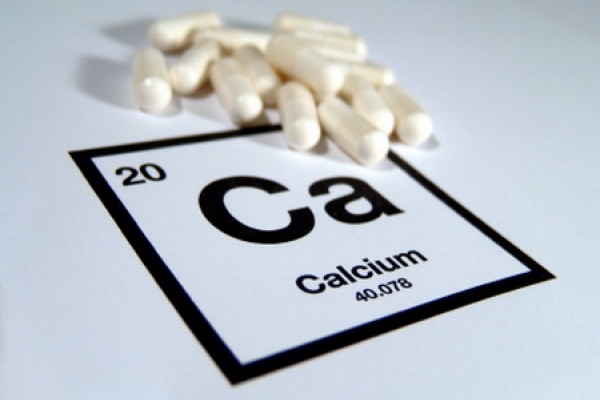Calcium during pregnancy - how and when to take. Lack of calcium during pregnancy
Pregnant women definitely need to include foods containing calcium in their diet, because its deficiency can cause many health problems, both for the expectant mother and the baby. After all, we all know that calcium forms bone tissue, hair, teeth and even participates in the functioning of the cardiovascular and nervous system. Lack of calcium in the body of a pregnant woman can lead to congenital abnormalities of the fetus.
If a pregnant woman lacks calcium in her body, then she will undoubtedly feel it for herself. The lack of this trace element will be reflected in this way:
- Nails will start to break and peel off all the time.
- The condition of the teeth will worsen, caries will develop.
- Hair will become dry, brittle and dull, and the ends will become severely split.
- In late pregnancy, due to lack of calcium, cramps in the legs and muscles of other parts of the body can appear, which is fraught with premature birth and other related problems.
During pregnancy, a woman needs twice as much calcium, because due to this microelement, the skeleton and internal organs of the fetus are formed. However, calcium cannot be taken in excess either. To find out the dosage of calcium during pregnancy, you need to consult with your doctor. He will give practical advice on how much and what calcium to take during pregnancy.
How to make up for the lack of calcium during pregnancy?

First of all, every expectant mother needs to plan her diet so that it includes foods that contain calcium. The list of these products includes:
- Cod liver.
- A fish.
- Eggs.
- Fish fat.
- Cabbage.
- Rye bread.
- Parsley.
- Celery.
- Currant.
- Strawberry.
- Nuts.
- Cherries.
- Dairy products.
- Milk.
However, it is impossible to fully replenish the body's need for calcium with food alone. It is imperative to take extra calcium tablets during pregnancy. In the process of carrying a child, the expectant mother needs to consume 1500 milligrams of calcium.
Calcium supplements during pregnancy

In this section, we list which calcium supplements during pregnancy are most often prescribed by doctors:
- Calcium gluconate during pregnancy, available in tablets and injections. It is used by expectant mothers, as a rule, from the 14th week of pregnancy.
- Calcium carbonate d3 during pregnancy is a drug that is best absorbed by the body of a pregnant woman also because, in addition to calcium, it also contains vitamin D. according to the instructions, calcium d3 during pregnancy should be taken three times a day, one tablet at a time ... Take each tablet with plenty of liquid. There are two calcium d3 preparations available at the pharmacy:
- Calcium "Nycomed" during pregnancy, available in the form of chewable tablets.
- Calcium "Complivit" during pregnancy is a complex vitamin complex that will not harm the health of the expectant mother.
- Calcium Citrate - One tablet of this drug contains only 250 mg of calcium, so it needs to be taken 6 times a day. Preferably after every meal. According to reviews, calcium citrate during pregnancy is best for expectant mothers. It is sold in a pharmacy under the name Kalcemin.
Calcium use during pregnancy

We have identified several basic rules that expectant mothers should adhere to if they decide to drink calcium during pregnancy:
- Do not drink more than one tablet at a time if it contains 500 mg of calcium. If you are taking the drug in such a dosage, then you need to drink calcium three times during the day, since the calcium norm during pregnancy is 1500 mg.
- Take calcium either with food or on an empty stomach.
- After childbirth, you need to be very careful to take calcium supplements d3, as it will accumulate in the body in excess and can pass into breast milk.
- After childbirth, in no case should you stop taking calcium.
If you do not follow the above rules, then:
- An overabundance of calcium will begin to be deposited in the placenta, which will disrupt the correct fetal-placental blood flow.
- The baby's bones will lose their elasticity and become very hard, which will complicate the delivery process.
Contraindications to the use of calcium during pregnancy

Be sure to ask your doctor if you can use calcium during pregnancy for you, because there are several contraindications, in the presence of which calcium cannot be taken. These contraindications include:
- If you are allergic to any component of calcium supplements.
- You have been diagnosed with hyperparathyroidism.
- There are malignant tumors in the body.
- Chronic diarrhea takes place.
- Developed atherosclerosis.
- Renal failure was diagnosed.
Remember that the health and well-being of the child in utero depends entirely on you, as on the expectant mother. It is important not only to take calcium, but also to eat a balanced diet, walk in the fresh air, get more rest and not get nervous. Take care of yourself and your baby.
 How to have the perfect date when you're not romantic
How to have the perfect date when you're not romantic What diseases do you need to drink coffee - benefits and effects
What diseases do you need to drink coffee - benefits and effects All my brown eyeliners
All my brown eyeliners